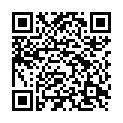|
|
|
| Module code: MP2208.MBIO |
|
|
2V+1P (3 hours per week) |
|
3 |
| Semester: 2 |
| Mandatory course: no |
Language of instruction:
German |
Assessment:
Exam
[updated 08.01.2024]
|
BMT2512.MBIO (P213-0156) Biomedical Engineering, Bachelor, ASPO 01.10.2018
, optional course, medical/technical, course inactive since 06.09.2022
BMT2512.MBIO (P213-0156) Biomedical Engineering, Bachelor, SO 01.10.2025
, optional course, medical/technical, course inactive since 06.09.2022
BMT1932 (P213-0156, P213-0164) Biomedical Engineering, Master, ASPO 01.04.2014
, optional course, general subject
MAM.2.1.6.20 Engineering and Management, Master, ASPO 01.10.2019
, optional course, general subject
MAM.2.1.6.20 Engineering and Management, Master, SO 01.10.2024
, optional course, general subject
MP2208.MBIO (P213-0156) Medical Physics, Master, ASPO 01.04.2019
, semester 2, optional course, medical/technical
MP2208.MBIO (P213-0156) Medical Physics, Master, SO 01.10.2025
, semester 2, optional course, medical/technical
|
45 class hours (= 33.75 clock hours) over a 15-week period.
The total student study time is 90 hours (equivalent to 3 ECTS credits).
There are therefore 56.25 hours available for class preparation and follow-up work and exam preparation.
|
Recommended prerequisites (modules):
None.
|
Recommended as prerequisite for:
|
Module coordinator:
Prof. Dr. Timo Gehring |
Lecturer: Prof. Dr. Timo Gehring
[updated 29.11.2024]
|
Learning outcomes:
After successfully completing this course, students will have significantly increased their knowledge in molecular biology, microbiology and hygiene. They will be proficient in the molecular biological methods currently used in clinical practice and research that enable a better understanding of modern medical diagnostic procedures and biotechnological processes.
Students will be familiar with the most important pathogenic bacteria and viruses, as well as antibiotics and the growing problem of antibiotic resistance. They will be able to assess which disinfection and sterilisation procedures should be used and when. They will be familiar with biotechnological processes and be able to cultivate the algae that also play a role in the pharmacological field.
[updated 08.01.2024]
|
Module content:
Basics of molecular biology
Current molecular biological and microbiological methods used for clinical diagnosis and in biotechnology.
Molecular biological methods:
Polymerase Chain Reaction (PCR)
DNA-modifying methods (e.g. restriction digestion, CRISPR-CAS, detailed implementation of cloning)
Southern blot analyses, DNA microarray and chip technology
DNA sequencing (Sanger method and Next Generation Sequencing)
Micro-biological procedures
Medical microbiology (pathogenic bacteria, viruses and others)
Hospital infections
Antibiotics and development of resistance against antibiotics
Desinfection and sterilization
Photosynthesis and the use of algae in biotechnology
Safety seminar for the practical course
Use of the following molecular biological/biotechnological methods in the practical course:
Isolating DNA from various algae (cyanobacteria)
Amplification of 16S rDNA of these cyanobacteria by PCR
DNA gel electrophoresis
[updated 08.01.2024]
|
Teaching methods/Media:
Video projector, Powerpoint presentation, lab experiments
[updated 08.01.2024]
|
Recommended or required reading:
Biochemie - H.R. Horton, L.A. Moran, K.G. Scrimgeour, M.D. Perry, J.D. Rawn.
Brock Mikrobiologie - M.T. Madigan, J.M. Martinko.
Hygiene und medizinische Mikrobiologie - M. Dülligen, A. Kirov, H. Unverricht.
[updated 08.01.2024]
|

